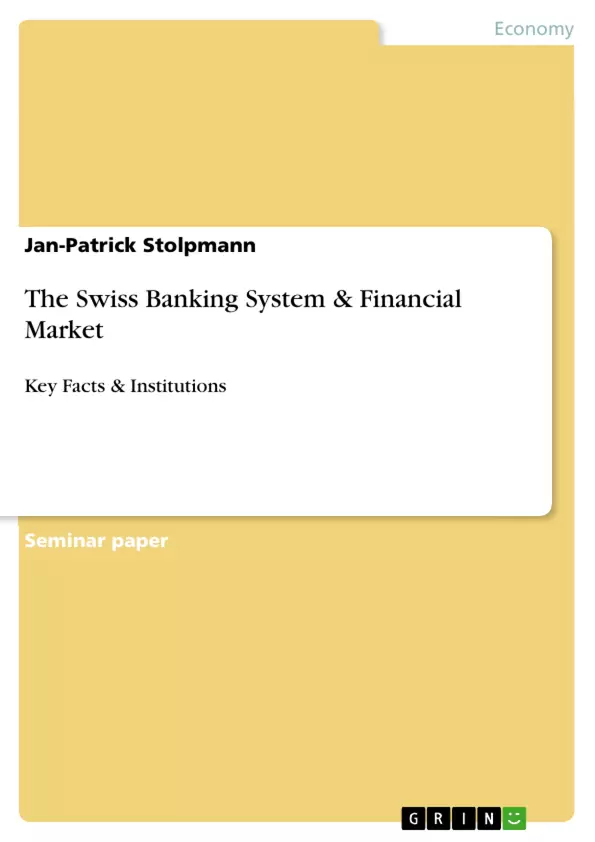The Swiss financial centre, with banking as its leading segment, is of immense international significance and is positioned amongst global market leaders. The financial centre contributes greatly to gross value added in Switzerland and by doing so to the wealth of the whole Swiss population. (Swiss Bankers Association, 2010)
In many aspects the banks are highly important to the Swiss economy. In terms of employees they offer a wide range of skilled jobs with potential earnings that are above average; a great portion of public sector financing is secured do to their tax contribution; and not to forget that they are centres of innovation and drivers of value added thus generating momentum for the entire economy. (Swiss Bankers Association, 2010)
- Quote paper
- Jan-Patrick Stolpmann (Author), 2010, The Swiss Banking System & Financial Market, Munich, GRIN Verlag, https://www.grin.com/document/172027



